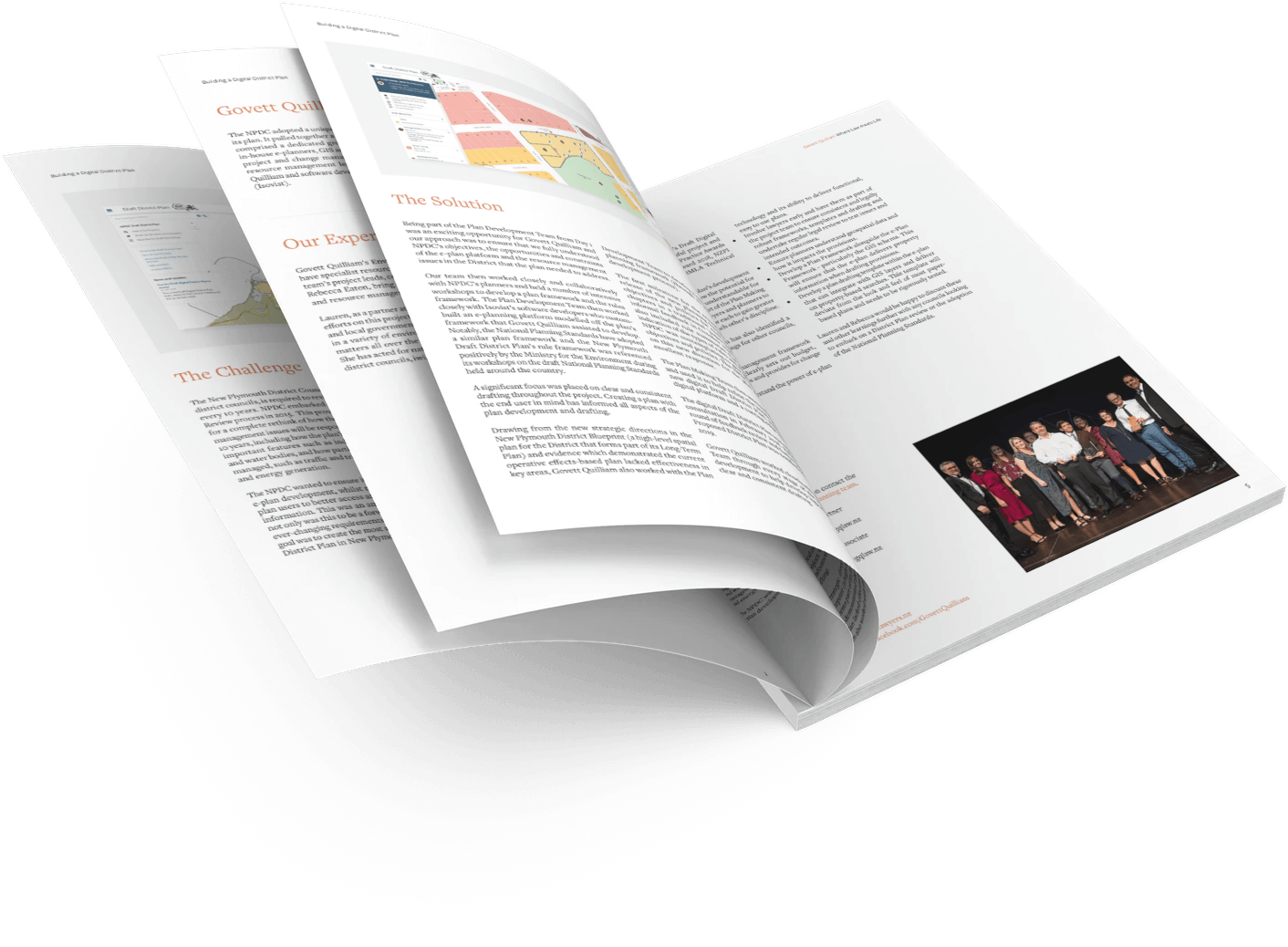On 24 July 2019, the Hon David Parker launched the Government’s “comprehensive overhaul” of the resource management system and the Resource Management Act 1991 (“RMA”). The overhaul is intended broadly to cut complexity and costs, better enable urban development and improve mechanisms for protection of the environment. The RMA has been amended 18 times since it came into force and is now double its original length, prompting significant criticism and numerous calls for reform. In his Cabinet Paper addressing the proposed Resource Management Amendment Bill, Hon David Parker states that the “current resource management and planning system is underperforming in its management of key environmental issues such as freshwater quality, climate change adaptation, and meeting people’s needs for affordable housing and thriving urban communities”.
The Government is approaching this process in two stages; firstly, focused amendments to the RMA and secondly, a comprehensive review of the resource management system.
Stage One: Amending the RMA
The Government has previously announced its intention to make several focused changes to the RMA through an amendment bill, with the purpose of reducing the complexity of the RMA, providing more certainty for users and increasing the opportunity for public participation. A number of these proposed changes are intended to reverse the amendments made by the Resource Legislation Amendment Act 2017.
The Government has indicated that the proposed amendments to the RMA will include:
- Removing preclusions on public notification and appeals for subdivision and residential activity resource consents and restrictions on the scope of appeals;
- Repealing the regulation-making power for additional fast-track activities;
- Reversing the change to the subdivision presumption (ensuring that all subdivision activities require resource consent unless permitted by a provision in the plan);
- Reinstating the use of financial contributions;
- Enabling longer time periods to lodge retrospective resource consents for emergency works;
- Strengthening enforcement tools for improving environmental compliance;
- Enabling the Environment Court to review councils’ resource consent notification decisions.
The Bill is expected to be introduced to Parliament later this year, with public submissions to be called for during the select committee stage.
Stage Two: A comprehensive review of the resource management system.
The second stage of the Government’s intended overhaul is a comprehensive review of the resource management system to examine the changes that need to be made to support the transition to a more productive, sustainable and inclusive economy.
The review is being led by a resource management review panel chaired by retired Court of Appeal Judge Tony Randerson. The remainder of the panel consists of Amelia Linzey, Dean Kimpton, Kevin Prime MBE ONZM, Rachel Brooking and Raewyn Peart MNZM.
“The members are high-calibre experts in planning, environmental management, resource management law, te ao Māori, local government and infrastructure development,” David Parker said.
The review is intended to focus on the RMA, including the way in which it interacts with the Local Government Act 2002, the Land Transport Management Act 2003 and the Climate Change Response Act (to be amended by the Zero Carbon Amendment Bill).
In particular, the aim of the review is to improve environmental outcomes and enable better and timely urban development within environmental limits. The terms of reference for the review panel includes a list of key issues the review should address, including:
- Removing unnecessary complexity from the RMA;
- Clarifying the role of Part 2 of the RMA (regarding the purpose and principles of the RMA), including whether Part 2 should sit in the RMA or in a separate piece of legislation;
- Ensuring the system has sufficient resilience to manage risks posed by climate change and other natural hazards;
- Aligning land use planning and regulation with infrastructure planning and funding through spatial planning;
- Considering whether or not to provide separate legislation for land use planning and environmental protection;
- Enabling faster and more responsive land use planning and adequate response to environmental harm;
- Ensuring appropriate mechanisms for Maori participation in the system, including giving effect to Treaty settlement agreements.
The panel will undertake two initial phases of consultation with targeted stakeholders and is expected to produce a proposal report at the end of May 2020. This report is to recommend how to improve the resource management system and provide detailed policy proposals for significant parts of a new Act or Acts, as well as indicative drafting of key legislative provisions. The Government has indicated that once the panel produces its report and recommendations, public consultation on these proposals will be undertaken.
While the outcome of the proposed “overhaul” is currently uncertain, the Government has clearly signalled a willingness to implement fundamental changes to the RMA and the wider resource management system. However, the timing of the review of the resource management system means that the recommendations of the panel will be unable to be implemented within this election cycle.
If you have any questions or wish to discuss the proposed reform of the resource management system, please contact Rebecca Eaton or Lauren Wallace.






.png)

